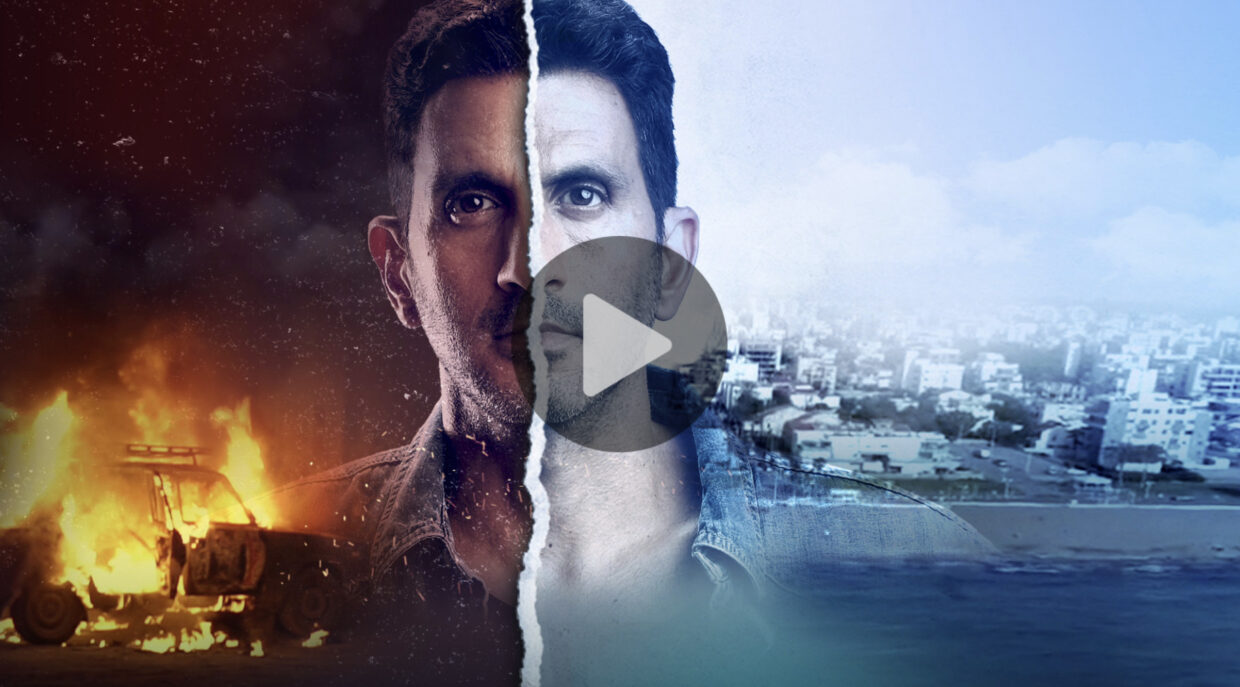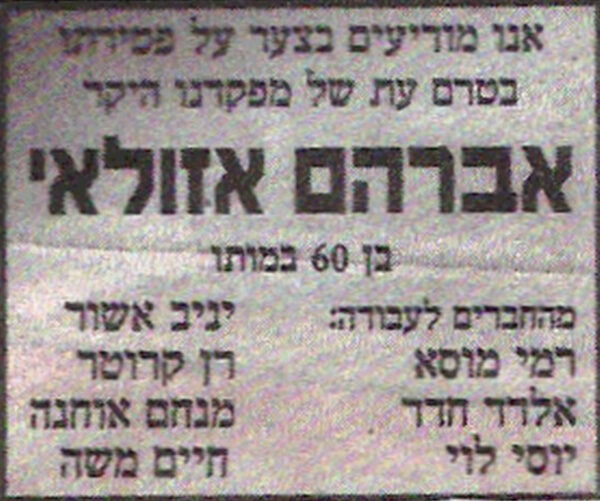
Our family tragedy kept me in Israel for three and a half months, during which my weekly escape was the second season of HaShotreem (“The Cops”) on Israel’s Channel 12 (all episodes available on the Mako website.) The show’s first season closely followed real-life events that occurred in Nahariya in 2006. At that time, northern seaside city Nahariya was controlled and terrorized by mob boss Michael Mor, whose stronghold on drugs, protection money, etc., extended to the city’s legitimate businesses and political structure. By contrast to the U.S., Israel has a national police force, rather than independent units for different municipalities. Nonetheless, the Nahariya police could not take on Mor and his organization; national headquarters refused to offer them help, because Mor was perceived to be a local threat, rather than someone serious on a national scale; and, consequently, their intelligence and covert operations units fell apart. Major Yaniv Ashur was summoned to rehabilitate the unit and confront Mor’s organization. Ashur’s invigorated, aggressive investigation saw some success: Mor was sentenced to seven months in prison for criminal threats.
But the retaliation from Mor’s side took a sinister turn: his people targeted the investigative detectives and threw grenades into their home, and even tried to kill the current mayor, vice mayor, and former mayor. The inability to protect themselves and their families, and Mor’s impunity, brought the cops, who received no backing or protection from the station or from headquarters, to hatch a desperate plan: they decided to shake up Mor’s confidence in order to push him to make a mistake. After consulting with an explosives expert, they laid pipe bombs under Mor’s vehicle and close to a home he owned. No one was hurt, and the investigating officers initially suspected Mor’s underworld competitors. Eventually, however, through an informant, the police arrived at the truth and managed to turn one of the “avenging cops” state witness against the others. The officers were tried, convicted, and sentenced to a year in prison.
The whole affair was silenced, but somehow, the names of the suspected cops leaked to the newspaper in the form of a fictitious obituary. Mor and his associates were suspected of paying for the ad, but have declined. In any case, even after the cops’ release from prison, they continued to be targeted by Mor, until his recent arrest.

The second season of HaShotreem, which ended last Tuesday, was fictional, but shared some elements with the first. In the series, the cops, recently released from prison thanks to a campaign spearheaded by their families and generally regarded as heroes in Nahariya, are unable to return to the force because of their criminal record and face dangerous retaliation efforts from the underworld. In their despair, they take a deal offered by their colleague who turned state witness (and, in the show, remained a cop): they agree to become undercover agents working for the crime boss’s competitor and bring him down in return for restoring their efforts. In the meantime, an anti-corruption candidate challenges the current mayor (who is mixed up with the underworld). The cops engage in dangerous missions as double agents, sometimes exceeding the framework and permissions of their jobs, and end up bringing down both their nemesis and his competitor. Here’s the first episode of the second season:
Commentators and reviewers have praised the acting and action scenes and the show’s riveting plot, but complained that, beyond that, it does not offer a moral center. They make a valuable point. At no point during the narrative are the viewers conflicted about the goodness or moral validity of the cops’ actions. They say to their commander, “we’ve learned from our mistakes,” but have they? No one makes any convincing argument that crossing the line like this could be problematic and, in the long run, erode what little legitimacy the police still has in high-crime neighborhoods. In that respect, the cops are quintessentially Israeli heroes: good guys fighting bad guys with the end justifying any means, and with no questions about shades of gray in “goodness” and “badness.”
Admittedly, I too have empathy for the show’s protagonists and for their real-life counterparts. They were placed in an impossible situation, with serious life threats against them and their families, with no backup or protection from their superiors, and later faced a thankless system. But one does not have to eschew this narrative wholesale to ask more difficult questions about how such events can affect the legitimacy of the police overall, or about whether we truly believe that, whenever the police crosses the line, it’s for a laudable goal and against a deserving target.
It’s been especially demoralizing to think about this slippery slope in light of what is happening as the show is broadcast: the increased military and border patrol support for horrendous settler violence in Palestine; the deliberate boundary-blurring similarities between police officers and rightwinger goons beating up protestors; deliberately sloppy police investigations leaving rightwing murderers free; and the constant talk of creating right-wing militias that will further blur the line between goon and lawman. How could the show’s producers not notice that this issue raises concerns that every Israeli should be pondering in 2023?




No comment yet, add your voice below!